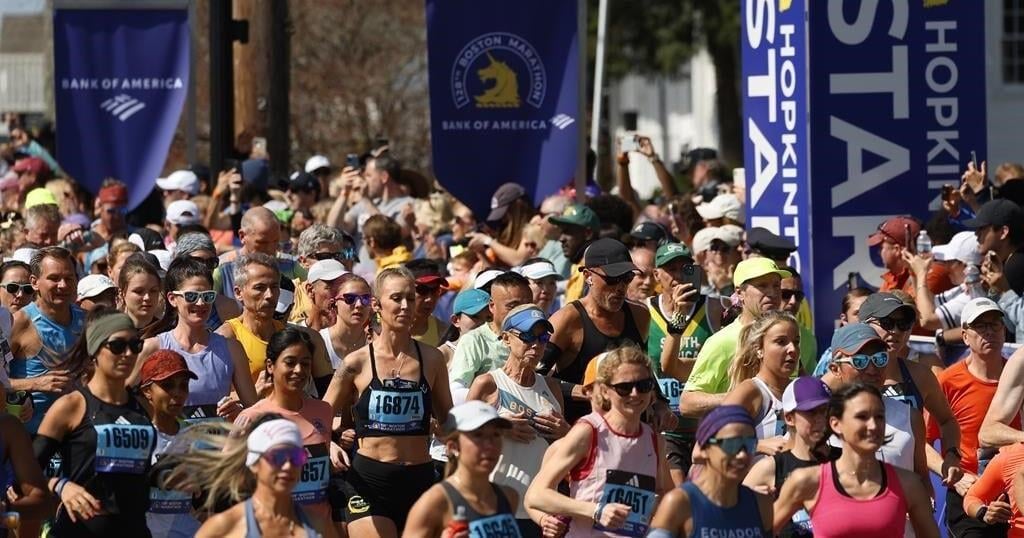The Canadian Hockey League is looking to capitalize on the sport’s cross-border rivalry by having its top draft-eligible prospects face USA Hockey’s National Development team in an annual two-game series starting in November.
Unveiled on Tuesday by the CHL, the series is being billed as the CHL-USA Prospects Challenge with this year’s games played at two Ontario cities — London and Oshawa — on Nov. 26-27. The CHL reached a three-year deal to host the series, with sites rotating between the group’s three members — the Ontario, Quebec Maritime, and Western hockey leagues.
Aside from the world junior championships, the series will feature many of both nation’s top 17- and 18-year-olds in head-to-head competition, something CHL President Dan MacKenzie noted has been previously lacking for two countries who produce a majority of NHL talent.
“We think we’ve got the recipe for something really special here,” MacKenzie said. “And we think it’s really going to deliver for fans of junior hockey who want to see the best payers of their age group play against each other with something on the line.”
A majority of the CHL’s roster will be selected by the NHL’s Central Scouting Bureau.
The Michigan-based NTDP, established by USA Hockey in 1996, is a development program for America’s top juniors, with the team spending its season competing in the USHL, while rounding out its schedule playing in international tournaments and against U.S. colleges. NTDP alumni include NHL No. 1 draft picks such as Patrick Kane, Auston Matthews and Jack Hughes.
For the CHL, the series replaces its annual top-prospects game which was established in 1992 and ran through last season. The CHL also hosted a Canada-Russia Challenge, which began in 2003 and was last held in 2019, before being postponed as a result of the COVID pandemic and then canceled following Russia’s invasion of Ukraine.
“The success of USA Hockey’s program has really evolved and sort of gets them in a position where they’re going to be competitive in games like this,” MacKenzie said. “We’re still the No. 1 development league in the world by a wide margin. But we welcome the growth of the game and what that brings to the competition level.”
The challenge series is being launched at a time when North America’s junior hockey landscape could be shifting with the potential of NCAA Division 1 programs lifting their longstanding ban against CHL players.
On Friday, Western Hockey League player Braxton Whitehead announced on social media he has a verbal commitment to play at Arizona State next season. Whitehead’s announcement comes on the heels of a class-action lawsuit filed last month, challenging the NCAA’s eligibility ban of CHL players.
A lifting of the ban could lead to a number of CHL players making the jump to the U.S. college ranks after finishing high school.
MacKenzie called it difficult for him to comment due to the litigation and because the CHL is considered an observer in the case because it was not named in the lawsuit.
“My only comment would be that we continue to be a great option for 16- to 20-year-old players to develop their skills and move on to academic or athletic pursuits by being drafted in the NHL, where we’re the No. 1 source of talent,” MacKenzie said. “And we’re going to continue to focus on that.”
___




























